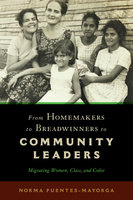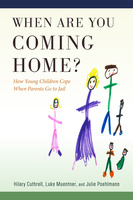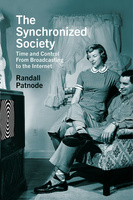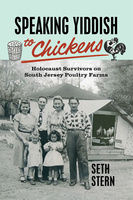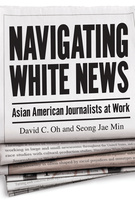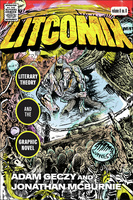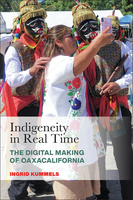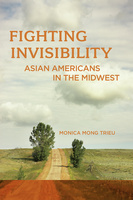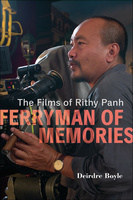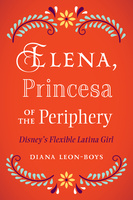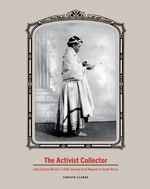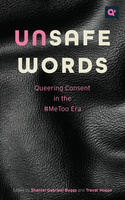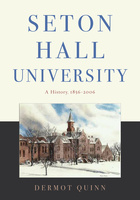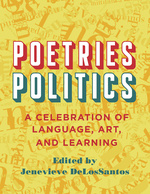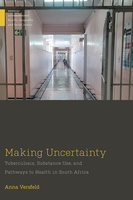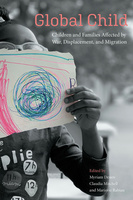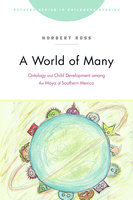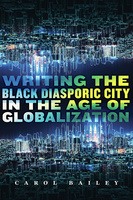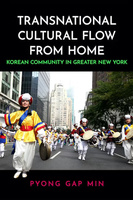
Bold Ideas, Essential Reading since 1936.
Rutgers University Press is dedicated to the advancement and dissemination of knowledge for a wide range of readers. The Press reflects and extends the University’s core mission of research, instruction, and service. They enhance the work of their authors through exceptional publications that shape critical issues, spark debate, and enrich teaching. Core subjects include: film and media studies, sociology, anthropology, education, history, health, history of medicine, human rights, urban studies, criminal justice, Jewish studies, American studies, women's, gender, and sexuality studies, LGBTQ, Latino/a, Asian and African studies, as well as books about New York, New Jersey, and the region.
Rutgers also distributes books published by Bucknell University Press.
Resilient Kitchens
American Immigrant Cooking in a Time of Crisis, Essays and Recipes
Global White Supremacy
Anti-Blackness and the University as Colonizer
George's Run
A Writer's Journey through the Twilight Zone
From Homemakers to Breadwinners to Community Leaders
Migrating Women, Class, and Color
From Crisis to Catastrophe
Care, COVID, and Pathways to Change
The COVID-19 pandemic has shaken the material and social foundations of the world more than any event in recent history and has highlighted and exacerbated a longstanding crisis of care. While these challenges may be freshly visible to the public, they are not new. Over the last three decades, a growing body of care scholarship has documented the inadequacy of the social organization of care around the world, and the effect of the devaluation of care on workers, families, and communities. In this volume, a diverse group of care scholars bring their expertise to bear on this recent crisis. In doing so, they consider the ways in which the existing social organization of care in different countries around the globe amplified or mitigated the impact of COVID-19. They also explore the impact of the global pandemic on the conditions of care and its role in exacerbating deeply rooted gender, race, migration, disability, and other forms of inequality.
Desegregating Comics
Debating Blackness in the Golden Age of American Comics
Desegregating Comics assembles a team of leading scholars to explore how debates about the representation of blackness shaped both the production and reception of Golden Age comics. It examines not only the racial stereotypes that predominated, but also the innovations of black comics artists and the activism of black fans.
Desegregating Comics
Debating Blackness in the Golden Age of American Comics
Black and Smart
How Black High-Achieving Women Experience College
Toward a Healthier Garden State
Beyond Cancer Clusters and COVID
W. E. B. Du Bois Souls of Black Folk
A Graphic Interpretation
Undoing Motherhood
Collaborative Reproduction and the Deinstitutionalization of U.S. Maternity
Garbage in the Garden State
Enduring Polygamy
Plural Marriage and Social Change in an African Metropolis
Enduring Polygamy explores sweeping social changes in urban Africa through the lens of plural marriage. The book offers insights into gender dynamics and the cultural, economic, and political factors affecting how, when, and why people marry. The bookoffers an open-minded but unflinching perspective on a contested but resilient form of marriage.
Dying Green
A Journey through End-of-Life Medicine in Search of Sustainable Health Care
Caribes 2.0
New Media, Globalization, and the Afterlives of Disaster
Cancer Entangled
Anticipation, Acceleration, and the Danish State
Cancer Entangled
Anticipation, Acceleration, and the Danish State
Hero Me Not
The Containment of the Most Powerful Black, Female Superhero
Dying Green
A Journey through End-of-Life Medicine in Search of Sustainable Healthcare
When Are You Coming Home?
How Young Children Cope When Parents Go to Jail
Unequal Choices
How Social Class Shapes Where High-Achieving Students Apply to College
The Synchronized Society
Time and Control From Broadcasting to the Internet
Speaking Yiddish to Chickens
Holocaust Survivors on South Jersey Poultry Farms
Navigating White News
Asian American Journalists at Work
Navigating White News: Asian American Journalists at Work is the first book-length study of Asian American reporters. It documents the frustrations, challenges, desires, and hopes they face in predominantly White newsrooms. In a time of racial awakening with Black Lives Matter and COVID-19, the book offers critical insights to the workings of American newsrooms.
Litcomix
Literary Theory and the Graphic Novel
Indigeneity in Real Time
The Digital Making of Oaxacalifornia
Fighting Invisibility
Asian Americans in the Midwest
Ferryman of Memories
The Films of Rithy Panh
Elena, Princesa of the Periphery
Disney’s Flexible Latina Girl
Arranged Marriage
The Politics of Tradition, Resistance, and Change
The Activist Collector
Lida Clanton Broner’s 1938 Journey from Newark to South Africa
“After twenty-eight years of desire and determination, I have visited Africa, the land of my forefathers.” So wrote Lida Clanton Broner (1895–1982), an African American housekeeper and hairstylist from Newark, New Jersey, upon her return from an extraordinary nine-month journey to South Africa in 1938. This epic trip was motivated not only by Broner’s sense of ancestral heritage, but also a grassroots resolve to connect the socio-political concerns of African Americans with those of Black South Africans under the segregationist policies of the time. During her travels, this woman of modest means circulated among South Africa’s Black intellectual elite, including many leaders of South Africa’s freedom struggle. Her lectures at Black schools on “race consciousness and race pride” had a decidedly political bent, even as she was presented as an “American beauty specialist.”
Unsafe Words
Queering Consent in the #MeToo Era
Seton Hall University
A History, 1856–2006
In this vivid and elegantly written history, Dermot Quinn examines how Seton Hall University was able to develop as an institution while keeping faith with its founder’s vision. It also tells the stories of the people who shaped the university and were shaped by it: the presidents, the priests, the faculty, the staff, and of course, the students.



